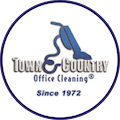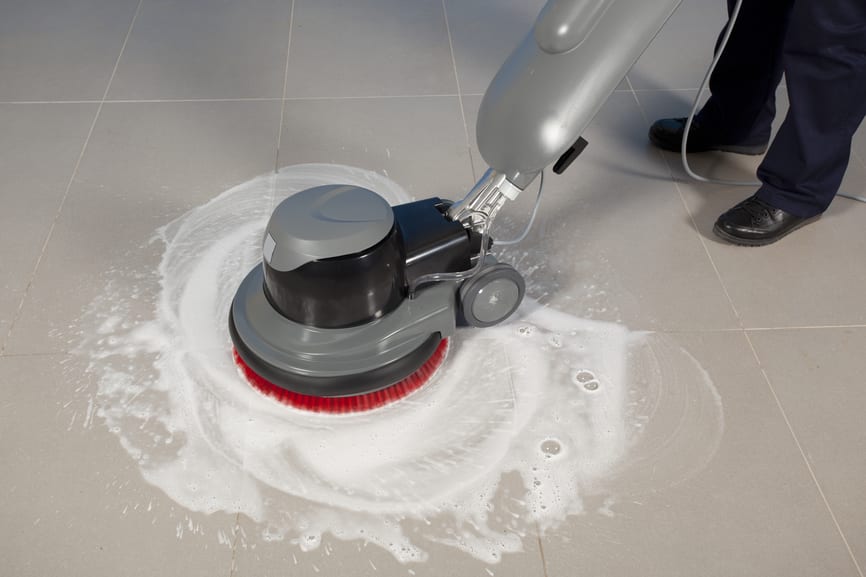
How and if your floors are sealed can be an important consideration in a commercial setting. An investment in new flooring products can be significant. For business owners and facilities managers, finding an effective way to preserve commercial flooring can extend the life of the surfaces, saving money on maintenance and keeping the facility looking clean and professional. Different surface types, including tile, concrete and vinyl, require differing approaches for sealing and preservation.
Ceramic and Natural Stone Flooring
Although ceramic tile is typically factory-sealed, natural stone products usually are not. No matter which type of tile you select, grout joints are highly vulnerable to staining and degradation. Applying an impregnating or penetrating sealer to tile flooring (even ceramic) offers many benefits. Microscopic pores on the surface of tile and grout allow moisture, dirt, oils and bacteria to accumulate. As a result, staining and mold can occur. Natural surfaces including travertine, marble, granite and slate can also discolor, ruining the natural beauty of the stone. Professionally applied sealer systems are highly effective for overcoming these problems and reducing required maintenance, especially when applied at the time of installation. If stains and dirt have already built up, be sure to have the tile and grout professionally cleaned immediately prior to sealing.
Concrete Floors and Surfaces
Concrete flooring has long been the surface of choice for industrial and warehouse facilities, but it is commonly used today for decorative applications as well. Unprotected concrete is prone to staining, but it can cause other problems as well. Efflorescence, a phenomenon that occurs often with stained concrete, is a white, cloudy stain resulting from soluble salts rising to the surface. Dusting is another phenomenon that occurs from excess silt or clay in the concrete mix or other installation missteps. Dusting can cause concrete surfaces to degrade quickly, volatizing microscopic particles into the air and causing a health hazard. Avoid these problems by applying a commercial poly, resin or epoxy coating at the time of installation or as soon as possible once a problem is detected.
Resilient Vinyl Flooring
Newer commercial vinyl flooring products typically come with a factory-applied sealer, but this product wears away over time. Vinyl sealants help resist stains and provide better adhesion for the final finishing and polishing coat. For older vinyl surfaces, commercial stripping is necessary before the new sealer and polish coats can be applied. Although many manufacturers indicate that sealer is optional, maintaining a sealant coat reduces maintenance and makes cleaning much easier. Both of these factors can drastically improve the life of the floor as well as its appearance.
No matter what type of flooring your business has, Town and Country Office Cleaning can recommend the proper practices and procedures for cleaning, sealing and maintenance. Contact their experienced professional team today for more information and advice on floor sealing and protection.


